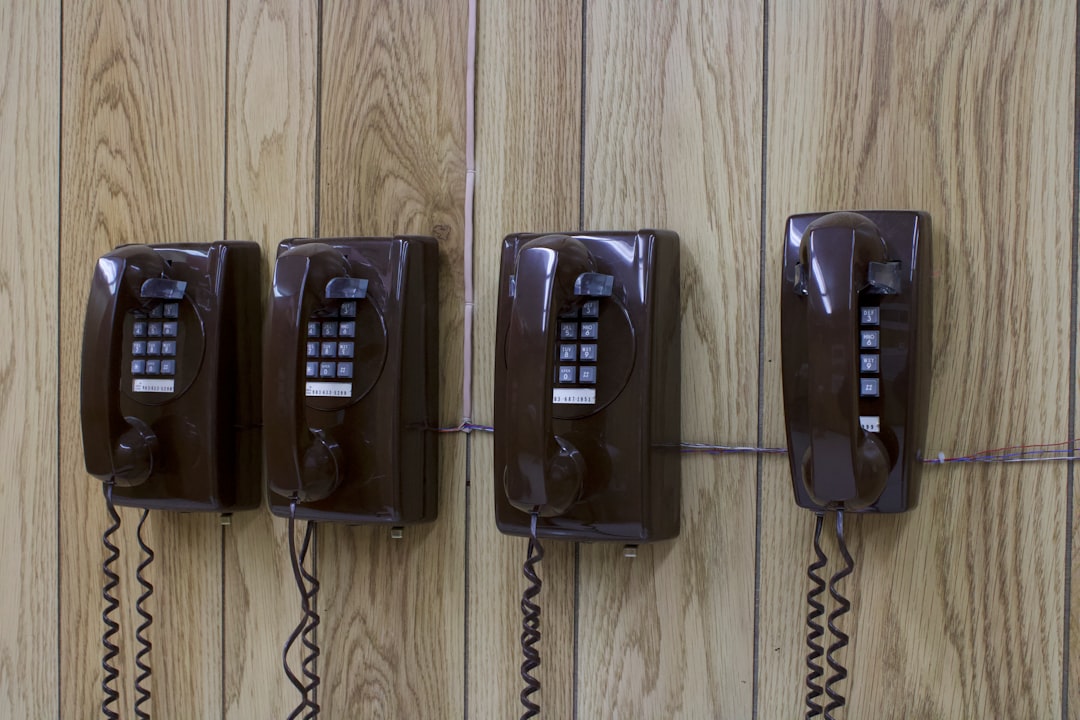Iowa's stringent spam call laws protect consumers' data and privacy, with businesses needing explicit consent for automated calls facing significant fines. A Spam Call law firm in Iowa guides citizens on their rights, educates businesses about legal ramifications, and fosters ethical marketing practices to prevent violations and build trust. Reporting unsolicited calls to FTC or Iowa Attorney General's Office aids in combating deceptive practices and ensures consumer protection.
In Iowa, consumer protection against spam texts has become a paramount concern, with stringent laws now in place to safeguard personal data. This article delves into the intricate details of Iowa’s spam text laws, focusing on their impact on businesses and individual consumers alike. We explore critical aspects such as data protection, legal obligations for companies, and the enforcement process. Understanding these regulations is essential for both residents and businesses operating within the state, especially with the help of a dedicated Spam Call law firm in Iowa.
Understanding Iowa's Spam Call Laws

Iowa has stringent laws in place to protect consumers from spam calls, ensuring a safer and more secure communication environment. The state’s legislation aims to prevent unwanted telemarketing practices by holding businesses and individuals accountable for their marketing strategies. Under Iowa law, a “spam call” is broadly defined as any telephone solicitation that delivers an unsolicited message or offers of products or services.
A Spam Call law firm in Iowa can guide residents on their rights and the legal implications of violating these regulations. Businesses must obtain explicit consent from consumers before initiating automated phone calls, and failure to do so can result in significant fines. This strict adherence to privacy laws empowers Iowans to take action against intrusive marketing tactics, offering them peace of mind and control over their personal data.
Consumer Data Protection Measures

In Iowa, consumer data protection is taken seriously, especially regarding spam calls. The state has implemented stringent laws to safeguard personal information from unsolicited and unwanted telemarketing practices. One significant measure is the requirement for businesses to obtain explicit consent before making automated telephone calls for marketing purposes. This means that a “do not call” opt-out option must be readily available to recipients, allowing them to choose against such communications.
Additionally, these laws penalize spam call law firms that violate consumer privacy. Fines and legal repercussions can deter businesses from engaging in aggressive marketing tactics, ensuring a more secure environment for residents’ data. Iowa’s strict regulations have set a benchmark for protecting consumer rights, especially with the increasing prevalence of automated phone calls and text messages in modern advertising strategies.
Legal Implications for Businesses

In Iowa, businesses must adhere to stringent spam call laws designed to protect consumer data and privacy. Violations can lead to significant legal repercussions, including substantial fines and damage to a company’s reputation. A Spam Call law firm in Iowa is crucial for organizations seeking to navigate this complex landscape. These experts can guide businesses on acceptable marketing practices, ensuring compliance with state regulations. By understanding and implementing the correct procedures, companies can mitigate risks and avoid costly mistakes associated with spamming activities.
Additionally, such firms offer valuable insights into consumer rights, helping businesses foster trust and maintain ethical standards. Regularly updating marketing strategies to align with evolving laws is essential for long-term success. With the help of legal professionals, Iowa-based businesses can protect themselves and their customers from the negative impacts of unsolicited communication, fostering a fair and transparent marketplace.
Enforcing and Reporting Spam Calls

In Iowa, enforcing and reporting spam calls is a critical aspect of consumer data protection. If you’ve received unsolicited phone calls promoting goods or services, you’re not alone. According to the Spam Call law firm in Iowa, such actions are often illegal and can be addressed through proper channels. The first step is to document the calls, including the date, time, and content of the messages. This information is invaluable when filing a complaint with the Federal Trade Commission (FTC) or the Iowa Attorney General’s Office.
Reporting spam calls not only helps protect yourself but also contributes to broader efforts against deceptive practices. These authorities have the power to investigate and take action against violators, potentially stopping similar incidents in the future. A Spam Call law firm in Iowa can guide consumers through this process, ensuring their rights are upheld and providing legal recourse when necessary.
The Impact on Local Businesses in Iowa

Local businesses in Iowa, particularly those in close contact with their customers, are significantly impacted by the state’s stringent spam call laws. These regulations, aimed at protecting consumer data and privacy, have forced many companies to reevaluate their marketing strategies. For small businesses, adapting to these changes might seem daunting, but it offers an opportunity to build trust and foster stronger relationships with clients.
By adhering to the spam call law firm Iowa standards, local enterprises can avoid penalties and ensure they remain compliant. This shift often involves adopting more personalized and targeted communication methods, such as direct mail or email campaigns with explicit opt-in consent from subscribers. While it may take initial effort, these practices could enhance customer satisfaction and loyalty in the long run, setting these businesses apart in a competitive market.






